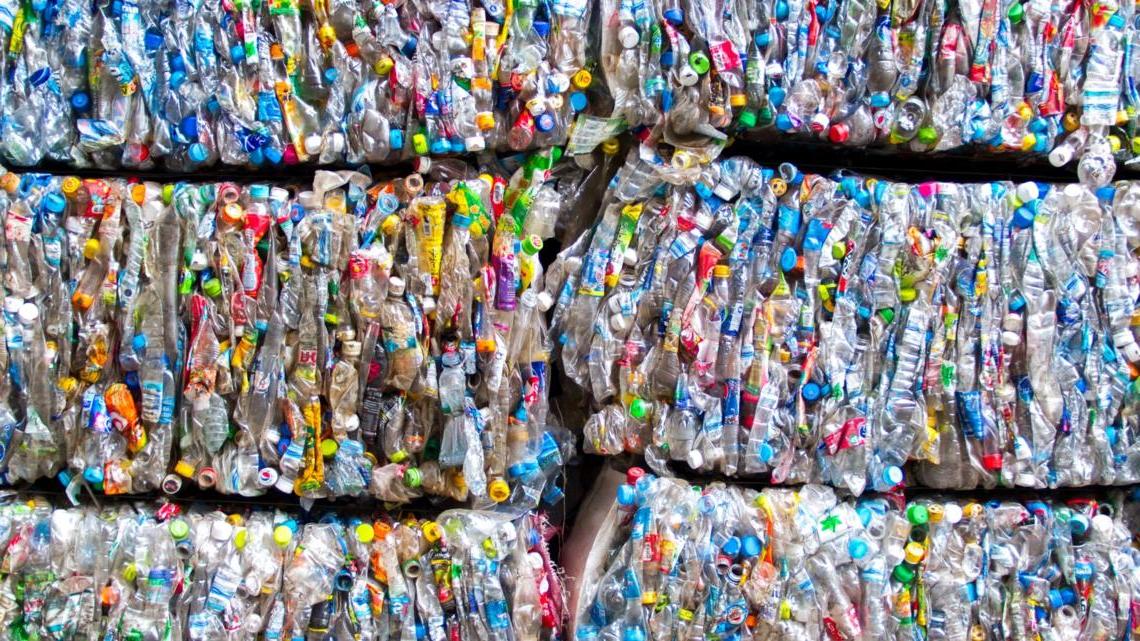The negotiations on an international legally binding instrument on plastic pollution are starting in Punta del Este, 乌拉圭-与 政府间谈判委员会第一届会议 (c -1)将于11月28日开幕.
This global instrument will set a global objective to end plastic pollution that countries will commit to reaching. As companies will play a key role in implementing the global instrument 和 as they have already started reporting their progress towards plastics circularity (such as through the 全球的承诺 由艾伦·麦克阿瑟基金会领导), we should take the opportunity to discuss the potential of a harmonized set of metrics to enhance transparency 和 disclosure by public 和 private sector actors on action to mitigate plastic pollution. 对企业来说,这是一个在全球企业责任方面达成一致的机会.
为了积极参与讨论,我们发表了白皮书 Enabling Corporate Plastics Disclosure: Opening the debate for the adoption of universal metrics,由WBCSD可持续塑料公司开发 & Packaging Value Chains project members Environmental Action (EA), Quantis 和 South Pole. 通过这篇论文,我们的目标是
- Provide a better underst和ing of the plastics-related metrics that companies are using to measure 和 report on plastic inputs on global markets 和 outputs into the environment under circularity approaches 和 the purposes for which these metrics are used; 和
- Open the debate on the harmonization of plastics-related metrics for disclosure purposes –to develop a global accountability framework that would allow tracking corporate progress on their targets (adjacent /integrated into country-level reporting).
披露的压力越来越大
The urgency to address plastic pollution puts increasing pressure on companies to disclose their efforts toward circularity to external stakeholders so that no plastic ends up in the environment. 除了报告内部决策(如 水务署的循环转型指标), companies will be increasingly required to disclose externally to stakeholders such as regulators, 政府, 投资者, 公民社会与消费者.
不需要新的度量标准,只需要协调
Companies can use many plastics-related metrics in different contexts 和 for other purposes – internally, 识别热点,并告知他们的决定,以改善循环, 或外部, to report progress toward a commitment (such as the EMF 全球的承诺) or comply with regulatory obligations. 其中一些指标涵盖了塑料投入(投放市场的产品), 产出(产生的废物的命运)或两者兼而有之. 然而, there is no global 和 st和ardized guidance on plastic disclosure 和 the diversity of definitions, metrics 和 methodologies waste time 和 resources 和 lead to incomparability of data.
在全球问责框架下实现融合
The negotiations on the international legally binding instrument on plastic pollution will address the reporting provisions to measure progress toward the goal that the global instrument will set. This offers a great opportunity to align corporate reporting under a global corporate accountability framework. Such a framework would enable tracking aggregate corporate progress on the targets (adjacent to or integrated into country-level reporting).
Our new paper proposes to align existing metrics that could be included in a global corporate accountability framework. 这些指标基于两个层面:
- Generic metrics that are applicable for any actor irrespective of its position within the plastic value chain, 和
- 特定于价值链中某些参与者的度量标准.
还提出了生命周期结束场景的其他建模指标, 因为它们允许进一步了解材料的循环潜力.
展开多方利益相关者辩论
We call for a debate 和 proactive coordination to create a global corporate accountability framework – in the context of the negotiations of the international legally binding instrument on plastic pollution. 这场辩论需要涉及多个利益攸关方:
- Organizations working in the field of sustainability reporting: to drive convergence on the plastic-related metrics that best reflect corporate progress towards the goal of ending plastic pollution.
- 业务:测试指标, 分析数据差距,确保公司能够有效地使用这些指标.
- Policymakers 和 country delegations involved in the international legally binding instrument on plastic pollution: to discuss what reporting metrics make sense 和 how to integrate reporting provisions in the international legally binding instrument on plastic pollution that aligns both the public 和 private sectors.
We aim to publish this paper ahead of each of the 5 Intergovernmental Negotiating Committee (INCs) meetings until the end of 2024 with integrated inputs from different stakeholders that WBCSD would periodically convene to reach a consensus by the end of the negotiations on this proposed global accountability framework.
在这篇文章中,我们呼吁采取一致行动. Now is the time to develop this global corporate accountability framework to align countries 和 the private sector to measure 和 report progress to end plastic pollution successfully.
Stakeholders interested in joining our debate 和 providing feedback on the white paper can do so by filling out this 咨询调查.








